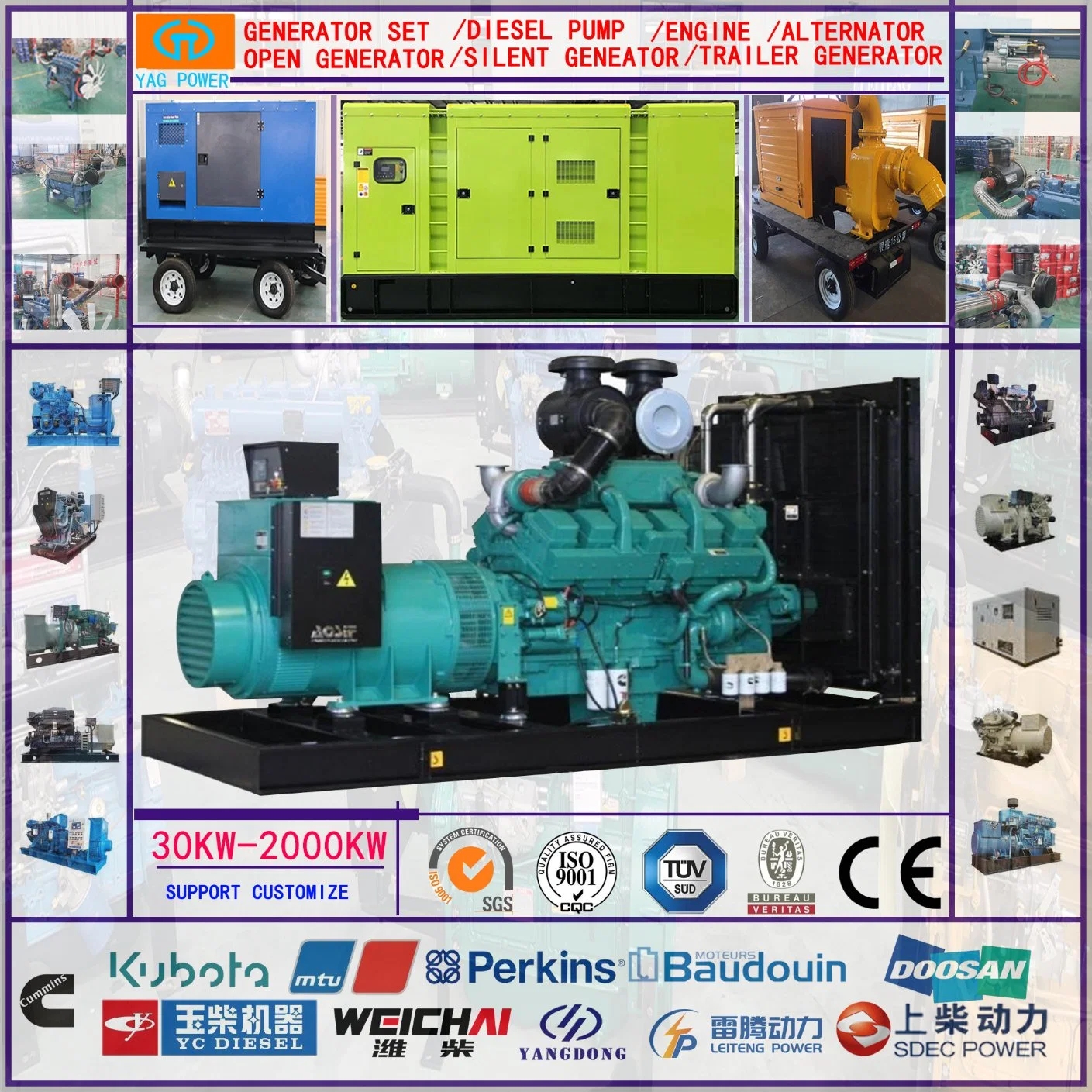Introduction
Diesel generators play a crucial role in providing backup power during emergencies or in remote locations where access to the grid is limited. These reliable machines are widely used across various industries, including construction sites, hospitals, data centers, and residential buildings. While diesel generators offer numerous benefits, they also pose potential risks if not operated and maintained properly. Therefore, ensuring safety standards in diesel generators is paramount to protect both individuals and property. In this article, we will delve into the importance of safety standards for diesel generators, common safety hazards associated with their use, and best practices to mitigate these risks effectively.
Importance of Safety Standards in Diesel Generators
Safety standards are essential guidelines and regulations set by industry authorities to ensure the safe operation, installation, and maintenance of diesel generators. These standards are designed to protect individuals from hazards such as electrical shocks, fires, and carbon monoxide poisoning that can result from improper use of generators. Adhering to safety standards not only mitigates risks but also promotes a culture of safety within organizations that rely on diesel generators.
Furthermore, compliance with safety standards is often a legal requirement in many jurisdictions. Failure to meet these standards can result in fines, legal liabilities, and even accidents that may cause harm to personnel or damage to property. By following safety standards, organizations demonstrate their commitment to workplace safety and minimize the likelihood of accidents or emergencies involving diesel generators.
Common Safety Hazards Associated with Diesel Generators

1. Electrical Hazards: Diesel generators produce high levels of electricity, which can pose a significant risk of electrical shock if proper precautions are not taken. Contact with live electrical components or improper grounding can result in serious injuries or even fatalities. It is crucial to follow safety standards related to electrical installations, grounding, and insulation to prevent electrical hazards when operating diesel generators.
2. Fire Hazards: Diesel generators operate by burning fuel to generate power, making them susceptible to fire hazards if not maintained correctly. Fuel leaks, overheating, or electrical faults can ignite a fire, putting personnel and property at risk. Following safety standards for fuel storage, ventilation, and fire suppression systems is essential to prevent fires and ensure the safe operation of diesel generators.
3. Carbon Monoxide Poisoning: Diesel generators emit carbon monoxide, a colorless and odorless gas that is highly toxic to humans. Improper ventilation or inadequate exhaust systems can lead to the buildup of carbon monoxide in enclosed spaces, posing a serious health risk to individuals. Compliance with safety standards for exhaust systems, ventilation, and carbon monoxide monitoring is crucial to prevent carbon monoxide poisoning when using diesel generators indoors or in confined areas.
4. Noise Pollution: Diesel generators are known for their noise levels, which can exceed safe limits and cause hearing damage if proper precautions are not taken. Prolonged exposure to high noise levels can have adverse effects on personnel working near diesel generators. Adhering to safety standards for noise mitigation, such as installing soundproof enclosures or using hearing protection, can help minimize the impact of noise pollution on individuals in the vicinity of diesel generators.
Best Practices for Ensuring Safety Standards in Diesel Generators
1. Regular Maintenance and Inspections: Implementing a comprehensive maintenance schedule for diesel generators is essential to ensure their safe and reliable operation. Regular inspections of fuel systems, electrical components, cooling systems, and exhaust systems can help identify potential issues before they escalate into safety hazards. Following manufacturer guidelines and industry best practices for maintenance can prolong the lifespan of diesel generators and reduce the risk of accidents.
2. Training and Education: Providing training to personnel responsible for operating diesel generators is crucial to ensure they understand safety procedures and protocols. Training should cover topics such as proper startup and shutdown procedures, emergency response plans, electrical safety, and fire prevention measures. Educating personnel on the risks associated with diesel generators and how to mitigate them can enhance safety awareness and reduce the likelihood of accidents.
3. Emergency Preparedness: Developing a comprehensive emergency response plan for diesel generator-related incidents is essential to ensure a prompt and effective response in case of emergencies. https://www.lkpowerplant.com/product/quick-delivery-emergency-standby-power-400kw-silent-type-diesel-generator-set-for-peru/ should outline procedures for addressing electrical faults, fuel spills, fires, carbon monoxide leaks, and other potential hazards associated with diesel generators. Conducting regular drills and training exercises to test the emergency response plan can help personnel react quickly and decisively during critical situations.
4. Compliance with Regulations: Staying informed about relevant safety regulations and standards pertaining to diesel generators is crucial for ensuring compliance and upholding workplace safety. Organizations must keep abreast of updates to safety standards and make necessary adjustments to their practices and equipment to meet regulatory requirements. Engaging with regulatory authorities and industry associations can provide valuable insights into best practices and emerging safety trends in the use of diesel generators.
5. Risk Assessment and Mitigation: Conducting a thorough risk assessment of diesel generator installations can help identify potential hazards and implement appropriate mitigation measures. Factors such as location, ventilation, fuel storage, electrical connections, and emergency shutdown procedures should be evaluated to minimize risks and enhance the overall safety of diesel generators. Engaging with safety professionals or consultants to perform risk assessments can provide valuable recommendations for improving safety standards in diesel generator operations.
Conclusion
Safety standards play a critical role in ensuring the safe operation of diesel generators and protecting individuals and property from potential hazards. By adhering to safety guidelines, organizations can mitigate risks associated with electrical, fire, carbon monoxide, and noise hazards when using diesel generators. Implementing best practices such as regular maintenance, training, emergency preparedness, compliance with regulations, and risk assessment can enhance safety standards and promote a culture of safety within organizations that rely on diesel generators. Ultimately, prioritizing safety in the operation of diesel generators is essential for safeguarding personnel, maintaining regulatory compliance, and preventing accidents in various industrial and commercial settings.
